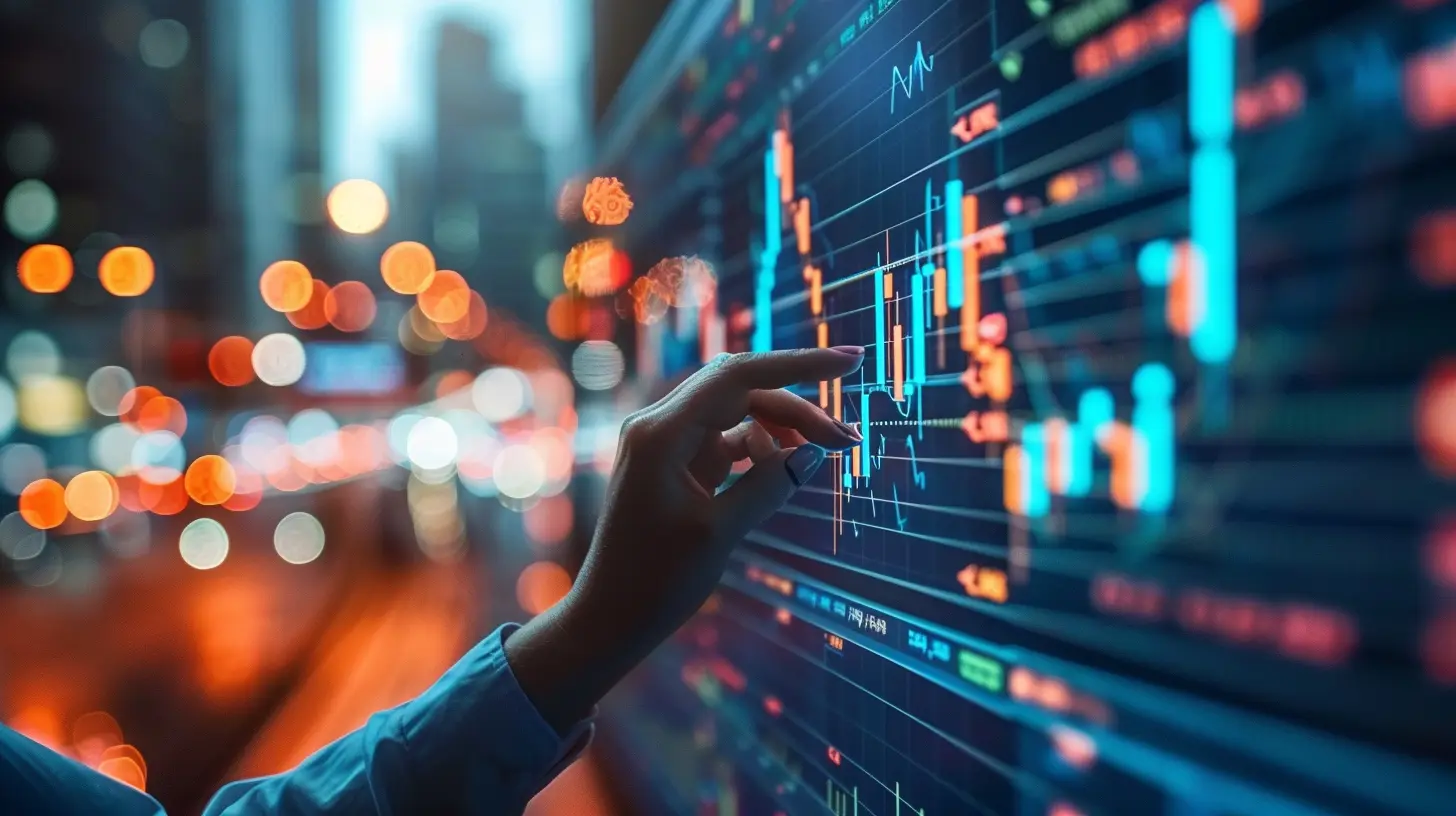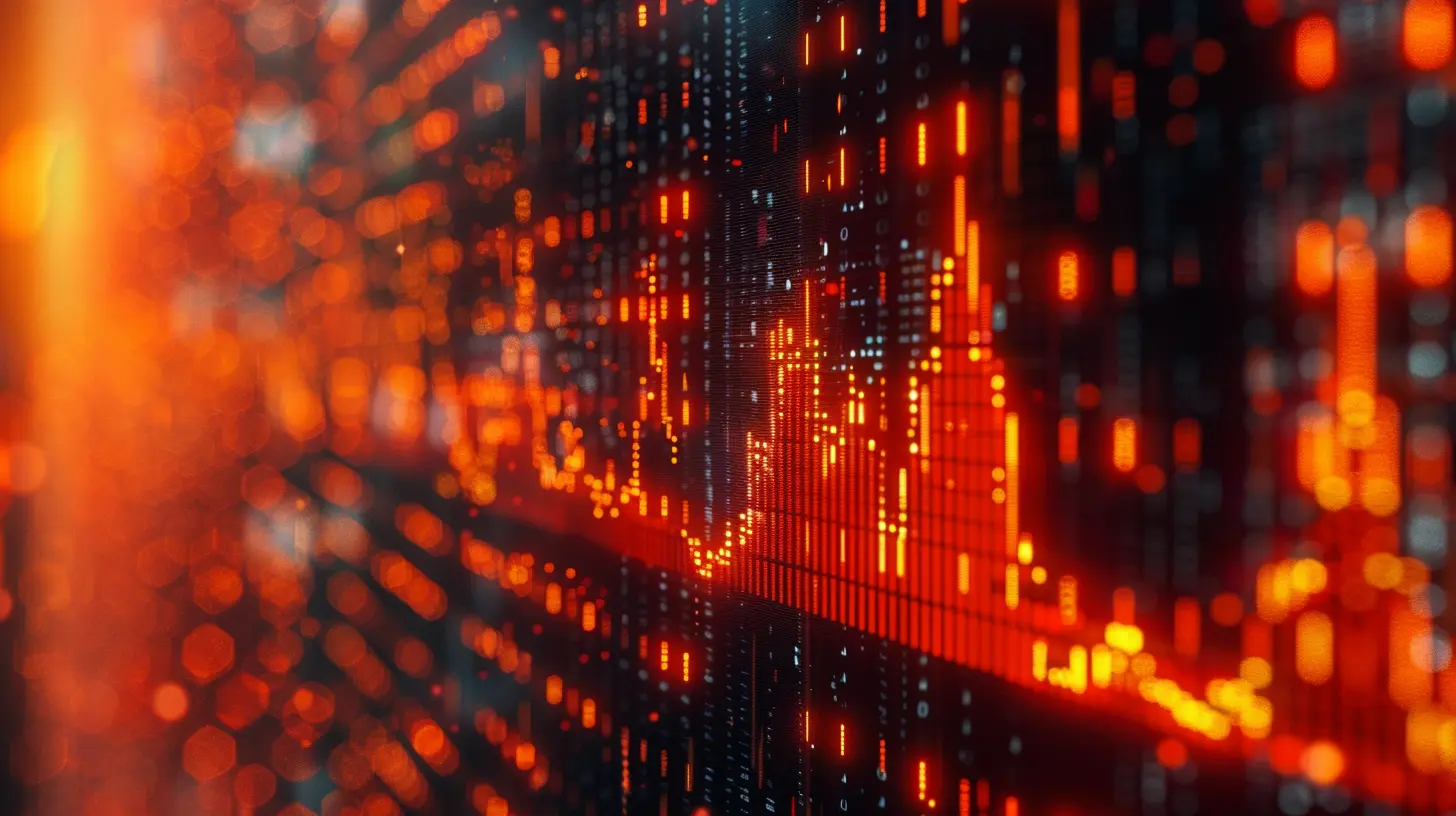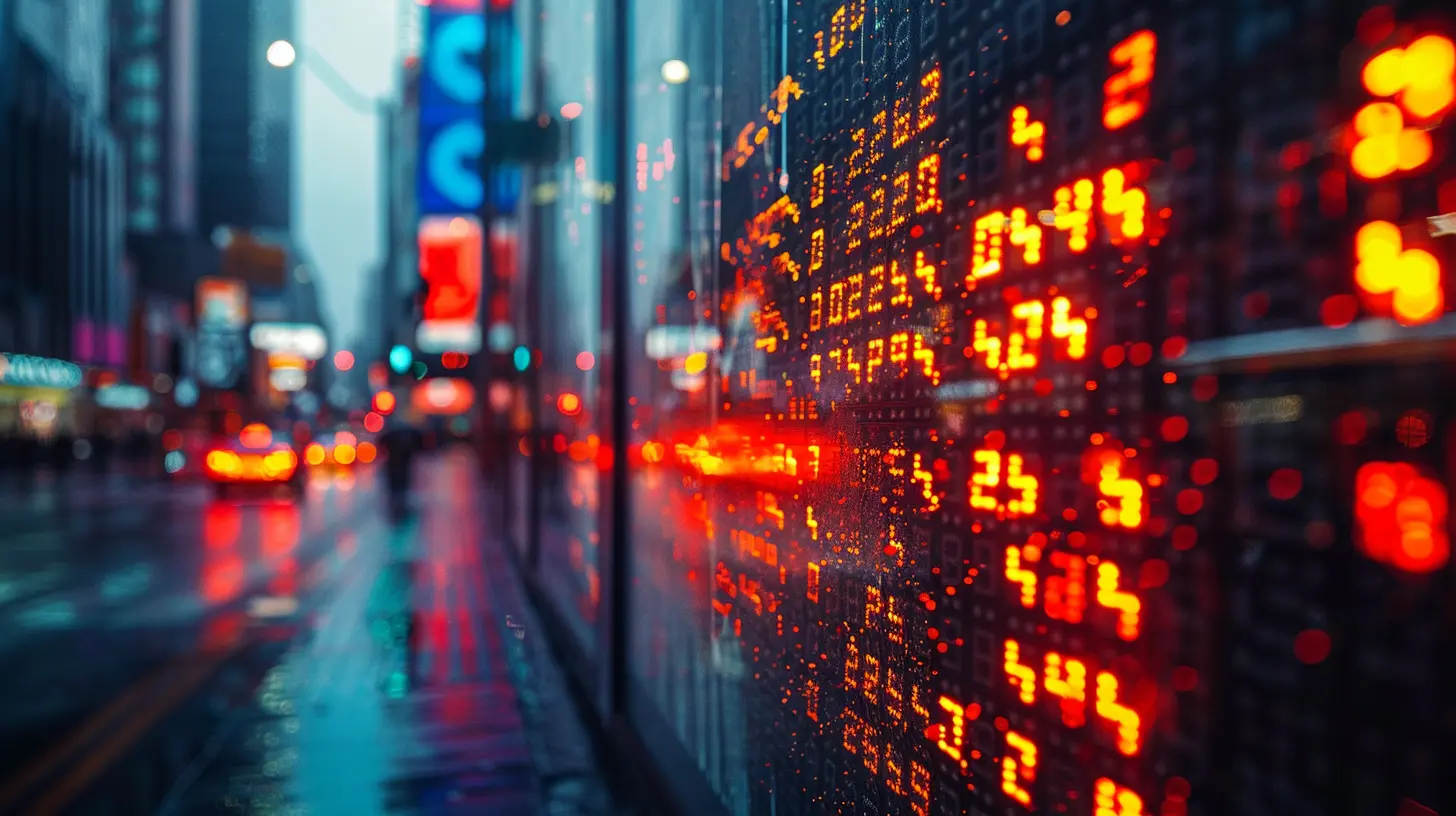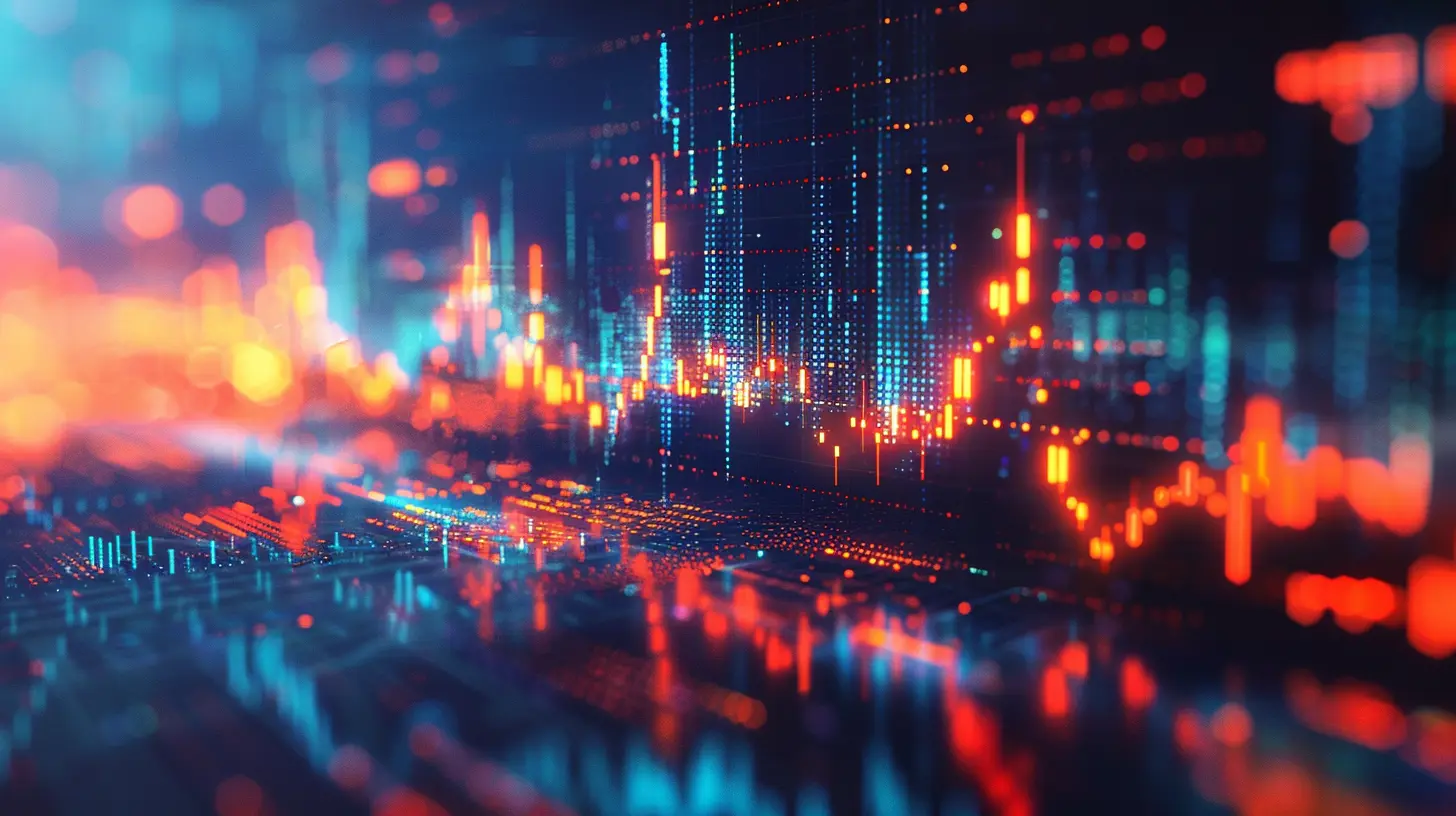The Role of Artificial Intelligence in Predicting Market Movements
29 June 2025
Raise your hand if you wish you had a crystal ball that could predict the next big stock market crash or, better yet, the next big boom. Anyone? Oh, I see you all waving frantically. Same here, my financially curious friend! But in this era of algorithms, robots, and AI that’s snatching every job (except mine… for now), there might just be a digital crystal ball in our midst. Yep, I’m talking about artificial intelligence and its growing role in predicting market movements.
Let’s take a wild (but well-informed) ride through the world of AI, stocks, and market sorcery.
🧠 What Is Artificial Intelligence (And Is It Smarter Than You)?
Okay, before we dive into the deep end, let’s break down what AI actually is. No, it’s not the Terminator (yet). In the most basic sense, artificial intelligence is a computer program that mimics human intelligence. It learns from data, identifies patterns, and even makes decisions — all without needing coffee breaks.In the world of finance, AI is the brainy nerd who never sleeps. It crunches millions of data points faster than you can say “Dow Jones,” constantly scanning for trends, sentiments, and signals that a human just couldn’t catch without growing another head or three.
📈 Predicting Market Movements: The Holy Grail of Finance
Trying to predict the stock market is like trying to predict your cat’s mood — it’s chaotic, confusing, and sometimes claws you back when you get too close. But predicting market movements is the dream. It’s the financial equivalent of discovering how to turn lead into gold.Wall Street analysts, traders, and your uncle who swears by that one stock tip he got in 1997 — they all want to know which way the market winds are blowing. Why? Because guessing right can mean big bucks. Guessing wrong? Well, time to eat ramen for a month.
AI is stepping in as the new soothsayer, and it’s got one serious advantage: data. Mountains of it.
🤖 How AI Is Used To Predict Market Movements
So how does AI actually do it? Does it ask Siri? Does it consult the stars? Not quite. Here’s how AI gets down to business:1. 📊 Analyzing Historical Data
AI systems are trained using years (sometimes decades) of historical market data. It’s like giving it access to every financial textbook ever written, plus all the cheat sheets.These algorithms look at price movements, volume, volatility patterns, and even past crashes and rallies. It’s like giving your portfolio a time machine with a notepad.
2. 🔍 Identifying Patterns and Trends
Have you ever tried to spot patterns in the market? It’s like trying to see shapes in clouds while blindfolded. AI, on the other hand, can pinpoint complex patterns that humans wouldn’t notice if they stared at charts for a hundred years.Maybe it notices that tech stocks tend to spike after a new iPhone launch, or that bad weather affects airline stocks. It’s basically the Sherlock Holmes of finance (minus the cool hat).
3. 🧵 Natural Language Processing (NLP)
This is where things get fancy. With NLP, AI can read and interpret news articles, financial filings, social media posts, and even Elon Musk tweets. (Which, let’s be honest, can shake markets more than a hurricane.)AI digests all this info and gauges the sentiment. Are investors excited? Panicked? Bored? An NLP model can turn all that word salad into actionable insights. It’s like reading the room — only the room is the entire internet.
4. ⏱ Real-Time Decision Making
Unlike your average investor who spends a few hours researching before making a trade, AI systems can make lightning-fast decisions. They can adjust strategies in real-time, responding to trends as they form — not after they’re front-page news.That’s not just smart investing. That’s superhero level.
🧪 Machine Learning vs. Human Intuition
Let’s talk about the showdown of the century: Machine Learning vs. Human Instinct. Who would win?Humans have gut feelings. Machines have algorithms. Humans have experience and emotion. Machines have, well… cold, calculated logic.
But here’s the twist: They work better together.
Wall Street is increasingly seeing a hybrid approach — where AI provides the data and humans apply the context. Think of it as Batman and Robin, with AI wearing the cape (or maybe just the processing chip).
🐦 When Tweets Shake the Market: Sentiment Analysis in Action
Remember when Elon Musk tweeted about Dogecoin and the thing shot up like a rocket? (Pun very much intended.)AI can actually track these tweets, analyze the sentiment behind them, and predict short-term reactions. It’s not just about what’s being said, but how it’s being said. Positive tone? Market goes up. Negative tone? Uh-oh, better hold onto your wallet.
It’s like emotional intelligence — but for robots.
📉 Can AI Actually Prevent Market Crashes?
Here comes the million-dollar question (or in some cases, billion-dollar): Can AI predict — or even prevent — market crashes?Short answer: Kind of. Long answer: Let’s explain.
AI is really good at spotting warning signs. Like, “Hey, this looks a lot like 2008!” But markets are driven by more than just numbers. There are emotions, panic, and good old-fashioned herd mentality.
So, while AI might ring the alarm bell, whether or not anyone listens is another story. It’s like a lifeguard yelling “Shark!” while everyone continues to do cannonballs — some folks just won’t budge.
💼 Hedge Funds and AI: A Match Made in Algorithm Heaven
You know those hedge funds with the fancy names and billion-dollar portfolios? Many of them are now powered by AI. Quant funds like Renaissance Technologies or Two Sigma use algorithms to guide their every move.These funds rely on AI to scour massive data sets, test strategies, and optimize portfolios faster than you can say “investment memo.” Some even use reinforcement learning — where the system learns from trial and error (yes, just like toddlers).
If AI is the engine, data is the fuel — and these hedge funds are building Formula 1 race cars.
👀 The Limitations of AI (Spoiler: It's Not Perfect)
Okay, before you go and hand over your entire 401(k) to a chatbot, let’s pump the brakes.AI is smart, but it’s not flawless. Here are a few things it still struggles with:
- Black Swan Events: AI can’t predict what’s never happened before. Global pandemics? Political coups? Sudden UFO sightings that spook investors? Yeah, not in the data set.
- Data Quality: Garbage in, garbage out. If the AI is fed bad data, it makes bad predictions.
- Overfitting: Sometimes AI gets too clever for its own good. It learns noise as if it were signal, which leads to poor performance in the real world.
- Ethical Concerns: There’s always the risk of AI being used to manipulate markets or make biased decisions. Wall Street’s not exactly known for its moral compass.
So don’t ditch your financial advisor just yet. AI’s great — but it’s not your money whisperer.
🧘♂️ The Future: AI as a Financial Guru or Just Another Tool?
Will AI replace investors entirely? Probably not. Will it make them a lot better at their jobs? You bet your bottom dollar it will.As AI continues to evolve, we’ll see even more advanced predictive models. Think quantum computing meets finance. Think AI that not only predicts the market… but strategizes your retirement, taxes, and maybe even your dating life (hey, finances matter in love too).
But one day, AI might know you better than you know yourself — especially when it comes to your risk tolerance. Scary? A little. Cool? Absolutely.
🧩 Final Thoughts: Should You Trust AI with Your Portfolio?
Alright, let’s wrap it up with a bow and a wink.Artificial intelligence is changing the game when it comes to predicting market movements. From crunching historical data to analyzing tweets, AI is working harder than your high school math teacher to give investors an edge.
But should you just throw all your eggs into the AI basket? Not quite.
Here’s the play: Let AI be your co-pilot. Use its insights to inform your decisions, but keep your hands on the wheel. After all, markets are driven by people — irrational, beautifully unpredictable, wildly emotional people.
AI might be the future, but your common sense is still your best asset. And maybe a good luck charm or two.
Now, where did I put my Bitcoin prediction robot?
all images in this post were generated using AI tools
Category:
Market TrendsAuthor:

Knight Barrett
Discussion
rate this article
2 comments
Candice Nelson
Thank you for shedding light on the intersection of AI and market predictions. While the promise of technology is exciting, it's essential to remember the human impact—navigating market fluctuations can be stressful. Staying informed and resilient is key as we embrace these changes together.
October 30, 2025 at 12:45 PM

Knight Barrett
Thank you for your thoughtful comment! Balancing technology and human insight is indeed crucial as we navigate these exciting changes.
Katherine Hubbard
Great insights! AI's impact on finance is fascinating.
July 7, 2025 at 3:27 AM

Knight Barrett
Thank you! I’m glad you found it intriguing. AI’s potential in finance is indeed transformative!


